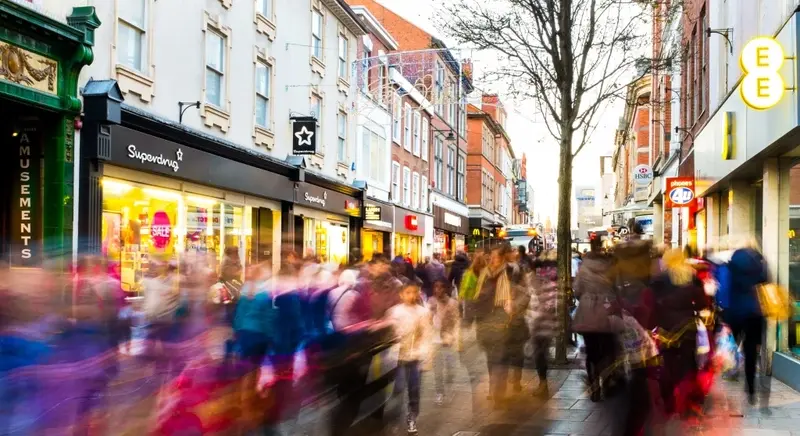
UK retail sales fell by 3.8% in November according to the latest figures from the Office for National Statistics (ONS), their biggest decline since the original lockdown in April, as last month’s patchwork of lockdowns shuttered non-essential retail stores during the crucial Christmas run-in.
The only sectors to enjoy monthly sales growth were household goods and food stores, positive for names ranging from Kingfisher (KGF) and B&M European Value Retail (BME) to Tesco (TSCO), Sainsbury’s (SBRY) and Morrisons (MRW), while discretionary clothing, carpet and floor covering sales were hardest hit.
FIRST DECLINE IN SEVEN MONTHS
Retail sales volumes dropped by 3.8% month-on-month in November, the first decline for seven months and following on from a 1.3% month-on-month gain for October, as the second English lockdown took its toll on non-essential shopkeepers.
Thankfully for the sector, the decline was limited by a strong pick-up in online sales and robust spending in supermarkets and other essential retailers.
With non-essential brick and mortar shops shuttered for much of November, a large proportion of spend shifted online, with digital retailers claiming almost one in every three pounds spent during the month.
CLOTHING BEARS THE BRUNT
Amid subdued high street footfall and the restrictions placed on socialising, it was clothing stores that bore the brunt, suffering a 33% plunge in in-store sales, with a 7.9% increase in online sales doing little to ease the pain.
‘It is notable that November’s fall in retail sales volumes was substantially less than the 18.2% month-on-month fall in April that followed the 23 March lockdown,’ pointed out Howard Archer, chief economic advisor to the EY ITEM Club.
‘Retail sales have been supported in recent months by the release of pent-up demand following the first lockdown. While consumer fundamentals have weakened amid rising unemployment and limited earnings, the furlough scheme has provided appreciable support,’ he continued.
Non-essential retailers will be hoping to make up as much as possible for lost sales in December as the critical Christmas shopping period peaks, though footfall could be constrained by consumer caution over Covid-19.
As Archer explained: ‘Latest data from Springboard show that shopper footfall across all UK retail destinations was up 19.5% week-on-week in the week to 12 December but was still down 29.9% year-on-year.
‘Retail sales may also be limited in the near-term at least by weakened consumer fundamentals, notably increasing unemployment and limited earnings. On the positive side, low inflation should be supportive to purchasing power while many consumers improved their financial position in the second quarter when the household savings ratio rose to a record 29.1%.’
HOPES AND TIERS
Elsewhere, Lee Lucas, chief executive of the Fashion Retail Academy, commented: ‘November is one the busiest months of the year for retailers, so this emergency measure by the Government will have been directly responsible for the unusually high level of discounting currently in stores, with shops fighting for every consumer in the briefest of run-ups to Christmas.’
Lucas says these sales figures have shown ‘that retailers with a strong digital presence were able to reap the benefits during lockdown as a flurry of online activity saw web sales soar by 74.7% compared to last year. While this year has been a challenge, the roll-out of the vaccine will have lifted hopes that tiers and restrictions will soon be behind us, and some semblance of normality can return.’





